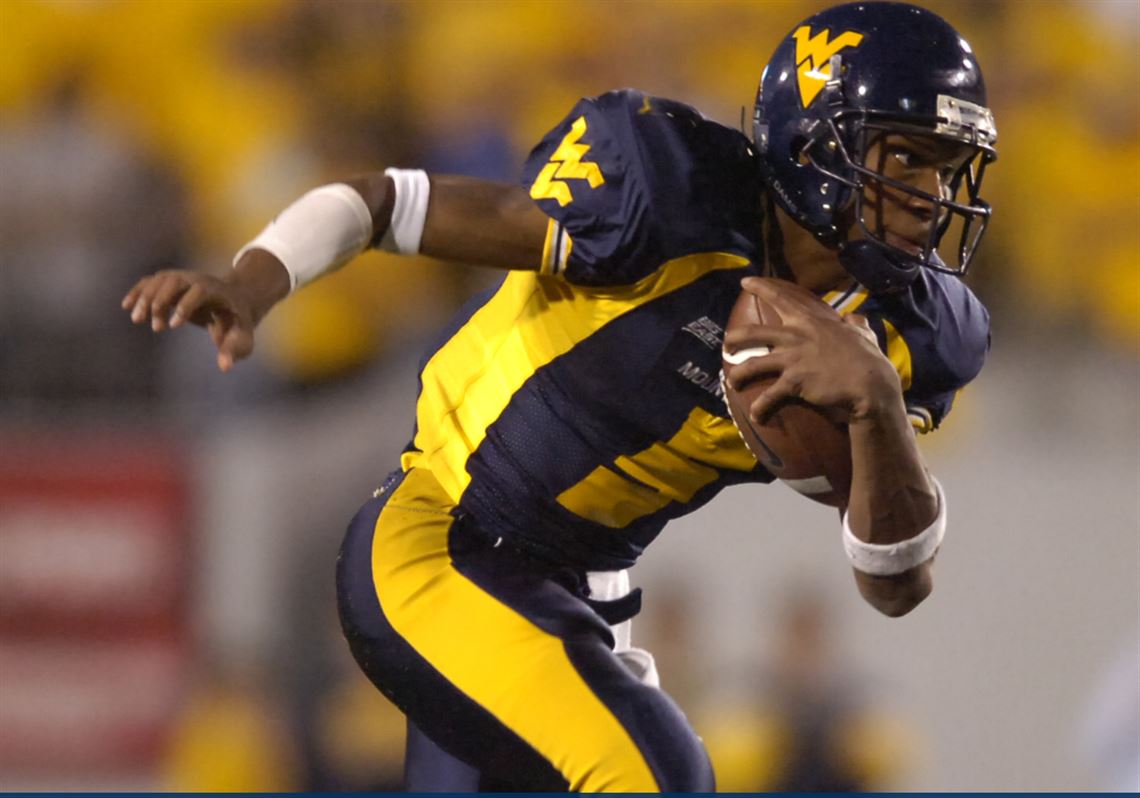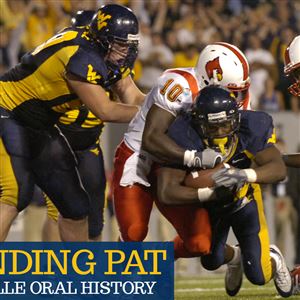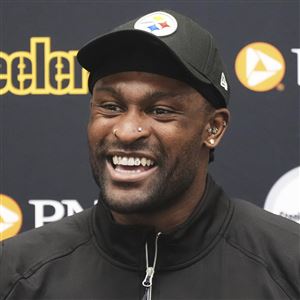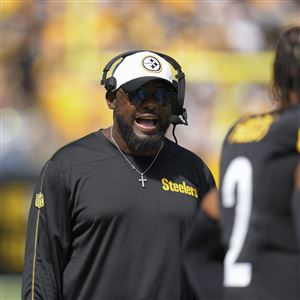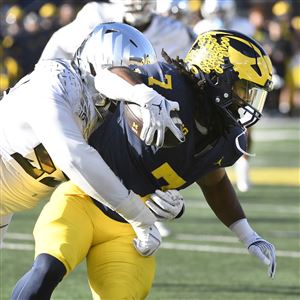Days before the game that would start his trek to superstardom, quarterback Pat White was done.
He was done with a lack of playing time and a lack of a role in West Virginia’s offense. He was done being relegated to a secondary role when he believed he was better than the man ahead of him. Most of all, he was done being overlooked.
Heading into an Oct. 15, 2005 game against Louisville, fresh off a game against Rutgers in which he had only three snaps, White’s frustration had reached a peak.
“Honestly, at that point, I was almost ready to give up and give in,” White said.
So, in a moment of need, this former fourth-round Major League Baseball draft pick and redshirt freshman called his father searching for an answer — should he stay with the Mountaineers or chase a new life in baseball?
“He pretty much told me to go out every day that week, the Louisville week, and give everything I had for every play I was in during practice,” White said. “If, at the end of the week, I felt the same, he would at that time bring me my baseball glove and I was going to head for professional baseball.”
That conversation altered the course of West Virginia football history. That Saturday, White replaced an injured Adam Bednarik in the fourth quarter, erased a 17-point deficit and led the Mountaineers to an improbable, 46-44 triple-overtime victory against the Cardinals.
The following week, he was named the team’s starting quarterback and from there, he and his team would never look back, winning 28 games and two Bowl Championship Series games over the next three seasons. It’s a span that transformed West Virginia’s coach into a hot commodity, its quarterback into a state folk hero and its program into one of college football’s best at the time.
“I would like to think we were on that path anyway because those guys were all young guys and they were going to keep getting better and were going to be good the next several years,” former West Virginia coach Rich Rodriguez said. “That probably accelerated that a little bit. There are always moments when you build a program that help you take that next step. I think that game was one of those moments.”
White’s star-making performance, for the most part, happened by accident. With 12 minutes remaining in the game — and with his team trailing the Big East Conference preseason favorite Cardinals, 24-7 — White had only seven snaps. But, when Bednarik injured his right foot with 11:20 remaining, White, a Daphne, Ala., native, got his long-awaited opportunity.
White and running back Steve Slaton led the Mountaineers to three scores to force overtime, running almost effortlessly through a Louisville defense that had been in control much of the game.
Three touchdowns in the three overtime periods gave the Mountaineers a lead, and a tackle from safety Eric Wicks on Louisville’s 2-point conversion attempt ended the game, sending Milan Puskar Stadium into euphoria. From the moment White came into the game, he accounted for 99 total yards while Slaton, a fellow freshman, rushed for 101 yards.
“My level of confidence started to build gradually throughout that season and in practice that week leading up to that game,” White said. “I had a mindset I was going to show them what they would be missing. They don’t think I’m good enough to be a starter, so let me show them that I am.”
Beginning with that game, White and Slaton emerged as a dream combination for Rodriguez’s spread offense and, for three years, they made West Virginia one of the most prolific offenses in college football.
The Mountaineers went on to win their next five games that season, capped by a 38-35 upset win against Georgia in the Sugar Bowl. Two years later, they were a shocking upset against rival Pitt away from playing for a national championship.
The win against Louisville also was a crucial turning point for the Mountaineers coach. After going 28-21 in his first four seasons at the school, Rodriguez went 32-5 in his final three years at West Virginia before leaving to become the head coach at Michigan.
White and Slaton have retired after short pro football careers. Rodriguez currently is the head coach at Arizona. But 10 years ago, all three were part of a moment that changed everything for West Virginia football.
“Once we got back to work that next week, we all realized — and Rich Rodriguez made us realize — that our ceiling was really, really, really high,” said former West Virginia kicker Pat McAfee, now a punter with the Indianapolis Colts. “We had a chance to be a great football team and a very successful team if we wanted to be. We just had to work for it. That’s what that game did for us. It propelled us into another stratosphere.”
Craig Meyer: cmeyer@post-gazette.com and Twitter @CraigMeyerPG.
First Published: October 15, 2015, 4:05 a.m.






